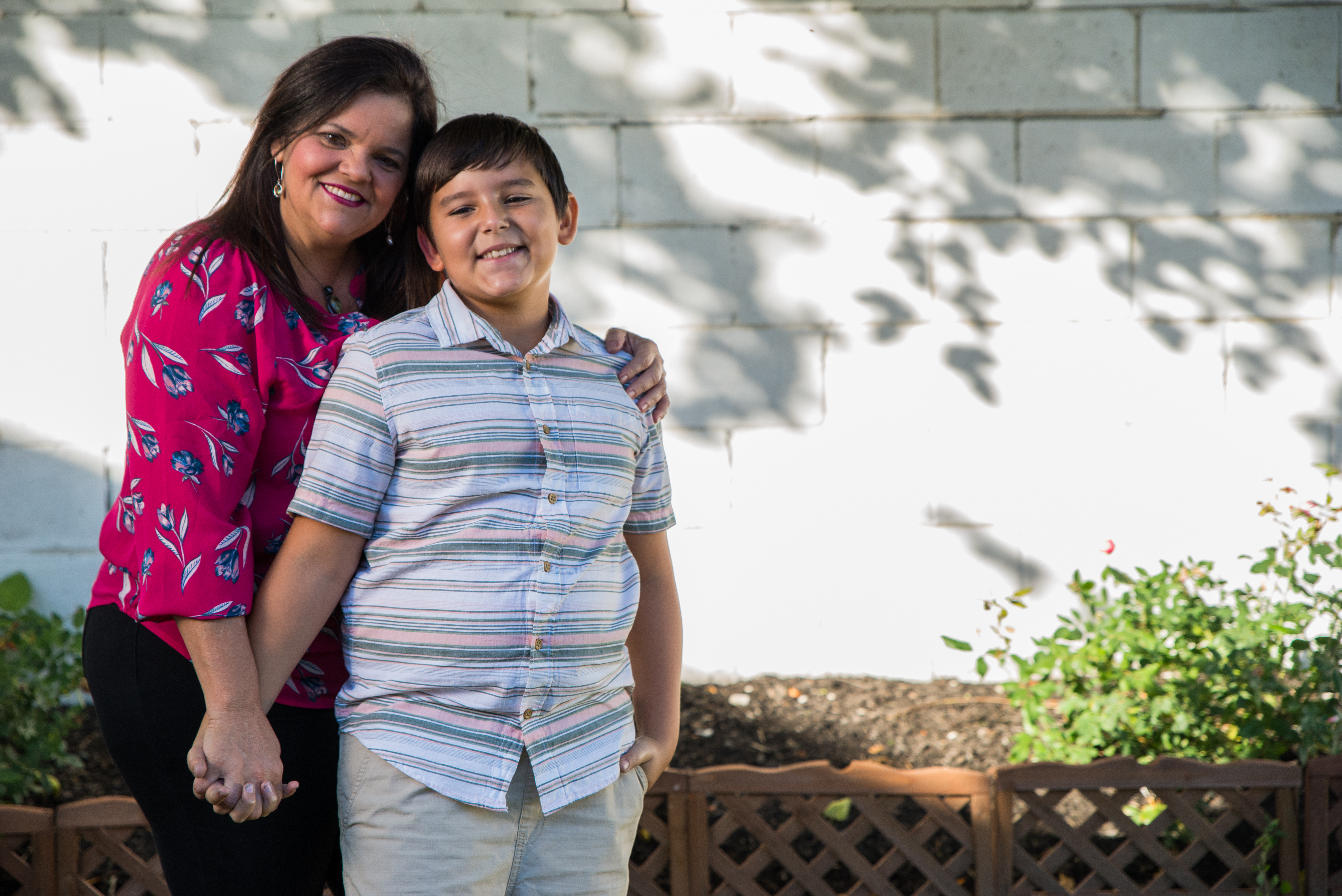After more than a month of threats, a government shutdown, and bipartisan action by Congress, President Trump has finally declared a national emergency to spend billions of taxpayer dollars on his border wall obsession. In response, the ACLU will file a lawsuit early next week challenging this blatantly illegal executive action.
Let’s get something straight upfront: There is no emergency. Members of Congress from both parties, security experts, and Americans who live at the border have all said so. What the president is doing is yet another illegal and dangerous power grab in service of his anti-immigrant agenda.
Trump’s declaration damages the rule of law and violates the constitutional checks and balances that protect us, the people, from a president’s abuse of power. The Constitution provides that Congress has the power to spend federal funds — our taxpayer dollars. And Congress has enacted a law that gives the president limited power to spend federal funds without a congressional appropriation when he declares a national emergency. That law lets the president spend taxpayer money on military construction when “necessary to support” the emergency use of armed forces.
What Trump is doing is patently illegal, because there is no emergency. He even admitted it himself during his press conference today: “I didn’t need to do this, but I’d rather do it much faster.”
And that’s the truth.
Three weeks ago, Trump announced that if Congress didn’t give him what he wanted, he would declare a national emergency. This week, Congress reached a bipartisan deal to avert another government shutdown and appropriated $1.375 billion for the border wall. President Trump disagrees with Congress’s decision and wants to spend more. That is not an emergency. It’s an unconstitutional usurpation of Congress’s spending power by the president.
The president’s action damages our democracy, and it also hurts our country and the American people in other ways. Security experts have pointed out that the irrational building of a border wall has done nothing to address the supposed “problems” Trump is worried about. Criminal cartels easily circumvent walls by tunneling under them or shipping drugs and contraband through official ports of entry. And the original scapegoats of Trump’s border wall obsession — families seeking asylum — have a legal right under U.S. and international law to apply for refuge, which they do by presenting themselves to U.S. border agents.
Americans who actually live, work, and visit at the border also stand to suffer from Trump’s border wall obsession. The president has indicated that he will target portions of the border in wilderness areas in Texas, where the construction of a wall will destroy national treasures — for no good purpose.
Cooler heads have tried and failed to get the president to back down on his illegal and irrational threat. Trump has finally made his move, and he can be sure we will, too. Come next week, we’ll see him in court.
Blog by Cecillia Wang, Deputy Legal Director, ACLU. Originally published on ACLU's Speak Freely.
Date
Friday, February 15, 2019 - 7:00pm
Featured image
Show featured image
Hide banner image
Related issues
Immigrants' Rights
Show related content
Tweet Text
[node:title]
Type
Show PDF in viewer on page
Style
Standard with sidebar
In the nearly 100 years of our existence, the ACLU has always fought for the right to live and love freely.
More than 50 years ago, the ACLU took on a historic case for love: Loving v. Virginia. Mildred and Richard Loving married on June 2, 1958, in Washington, D.C. But by this act of love, they committed what 17 states—including Virginia—considered to be a crime: interracial marriage.
After being arrested while traveling together, Mildred Loving wrote to Attorney General Robert F. Kennedy for help, and the couple was referred to the ACLU. Represented by ACLU attorneys, the Lovings took their case to the United States Supreme Court in 1967—and won. The Court ruled that state bans on interracial marriage were unconstitutional. In many ways, the unanimous Supreme Court triumph marked an extraordinary victory of love over hate.
But discriminatory attitudes about marriage and family did not disappear. Since the first marriage lawsuit for same-sex couples in 1970, the ACLU has been at the forefront of both legal and public education efforts to secure relationship protections for same-sex couples and legal recognition for LGBTQ relationships. Love did win in the end: The Supreme Court’s 2015 decision in the ACLU’s case Obergefell v. Hodges ensured that same-sex couples in all 50 states have the right to get married and have their marriages recognized, no matter where they live. We continue to fight to ensure full implementation of the Obergefell decision and equal protection for LGBTQ families.
All of the progress we have seen for the freedom to marry might have been delayed for years—or might never have happened at all—if not for Massachusetts. In 2004, Massachusetts became the first state in the nation to allow LGBTQ couples to marry—and the ACLU of Massachusetts was there every step of the way.
Today, the ACLU is fighting to protect and defend families—and to reunite loved ones torn apart by the Trump administration’s family separation crisis. Nearly one year ago, the ACLU sued the Trump administration in federal court, challenging its illegal and cruel practice of separating families. The events that followed shocked the world, as thousands of young children were locked away in immigration facilities alone while their parents were detained far away. The arising public outcry was loud and clear: Families belong together.
A federal judge stopped the Trump administration’s family separation policy in June 2018, ordering the government to reunite families. The ACLU immediately set to work to locate every separated parent and advise them of their rights to be reunited. About 95 percent of the children known to have been separated have now been reunited with their parents—but a recent government report reaffirmed that the administration does not know the total number of children it tore from parents under its family separation policy.
In Massachusetts, the ACLU continues to fight for families by challenging a Trump tactic of separating married couples pursuing lawful immigration status, and by advocating for legislation to keep families together. This Valentine's Day, stand up for love by registering for Immigrants' Day at the State House.
We believe that love wins—and history proves it.
RSVP for Immigrants' Day
Date
Thursday, February 14, 2019 - 10:45am
Featured image
Show featured image
Hide banner image
Related issues
Immigrants' Rights
Show related content
Tweet Text
[node:title]
Type
Menu parent dynamic listing
Show PDF in viewer on page
Style
Standard with sidebar
Blog by Carl Takei, Senior Staff Attorney, ACLU’s Trone Center for Justice and Equality
This past July, Oumou Kanoute was a rising sophomore at Smith College, working on campus over the summer to mentor high school students interested in science, technology, engineering, and math, or STEM, careers. A young Black immigrant and the daughter of a single mother, Oumou is exactly the kind of striver colleges like Smith seek to attract.
But Oumou felt anything but welcome on that late July afternoon. As she ate in a common room, wearing the unofficial Smithie uniform of athleisure clothing topped with a pink-and-white Vineyard Vines cap, a college employee decided she looked “out of place” and called the campus police on her.
The experience made Oumou become one of a troubling number of Black and brown people who have had the cops called on them simply for living their everyday lives. It also profoundly shook Oumou, and she now feels distinctly out of place in this predominantly white institution.
Today Smith College announced that it’s overhauling two key sets of policies involving calls to campus police. Both changes largely mirror the ACLU’s recommendations, and had they been in place last year, it is likely that Oumou would never have suffered the shame and trauma of an unnecessary police encounter.
The first change is the college’s guidance to employees on when to call the police. Instead of immediately calling the cops when they believe someone is “out of place” or otherwise doing something that isn’t a safety threat, employees are now advised to take the common-sense step of trying to resolve the situation by talking with the person first.
The second change modifies campus police responses to “suspicious person” calls. As Smith’s own statistics indicated, the vast majority of these calls target people who are not doing anything wrong, and a disproportionate number of these calls target Black people.
The new policy instructs dispatchers to collect more information from callers to determine an appropriate response — including whether a response is warranted at all. It requires law enforcement action to be based on articulable facts, circumstances, and conclusions that support the relevant legal standards for police action — not merely the hunches or private biases of whoever chose to call the police. It reminds officers that “the vast majority of our suspicious person calls turn out to be community members or guests of our community engaging in appropriate activity.” And it directs officers not to rush in with an aggressive response, but rather to collect information, exercise judgment, and interact in a respectful, non-accusatory manner with the person identified in the call.
These policy changes are a crucial step forward. But as Smith has acknowledged, even with these new policies in place, the college still has work to do on inclusion and campus climate. We encourage the college to work with student activists of color to make progress in these areas and listen closely to the demands made by Oumou and other students of color. These include embracing student demands for voluntary affinity housing, institutionalizing campus-wide discussions of race and equity like those now planned for the spring 2019 semester, and reexamining the people — including figures revered in Smith’s history — who enforced 20th-century racial segregation at the college.
In the meantime, however, other colleges and universities should take note. After all, Smith is hardly the only college facing this issue. Many of the recent examples of “Living While Black” police calls involve predominantly white college campuses that have allowed their campus police forces to be weaponized against their own students and employees of color.
To take just the most recent examples: Two Native American teenagers were targeted for being on a campus tour at Colorado State University. A Black grad student was targeted for taking a nap in her dorm’s common room at Yale. A Black college employee was targeted for walking to work at the University of Massachusetts Amherst. A Black library sciences student was targeted for trying to use the library at Catholic University of America. A Black undergraduate at the University of Texas San Antonio was targeted by her own professor for putting her feet up on a chair during class.
When colleges and universities refuse to adopt policies that protect their own Black and brown students from weaponized bias, they are making it crystal clear which students won’t be able to live as full members of the college community and which students will constantly have their place in this community questioned or threatened by campus authorities.
Following Smith’s step forward, we encourage other institutions to proactively change their policies. Promoting diversity isn’t enough. Schools have a responsibility to enact reforms that protect the students they recruit from the trauma of racial profiling, before a crisis unfolds on campus.
Date
Wednesday, January 30, 2019 - 3:30pm
Featured image
Show featured image
Hide banner image
Related issues
Racial Justice
Show related content
Tweet Text
[node:title]
Type
Show PDF in viewer on page
Style
Standard with sidebar
Pages


